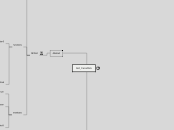by Mike Ton 11 years ago
621
Grid_FrameWork
A framework in Unity called GFGrid offers a flexible and abstract class for constructing grids. The GFGrid class serves as a template that cannot operate on its own or be attached to any object.

by Mike Ton 11 years ago
621

More like this
No compression
RGB16
Color Threshold
Green
2
G=253 to G=255 okay
Not RGBA16
Alpha channel compressed???
Advanced
Set to Read/Write
All grids inherit from the GFGrid class. GFGrid is an abstract class, which means it cannot do anything on its own and it cannot be attached to any object. Rather it serves as a template for what its children, the specific grids, have to be able to do, but not how they do it. You say that GFRectGrid, GFHexGrid and GFPolarGrid “implement” GFGrid.
Of course you can still reference any grid by its respective type like this:
var myGrid: GFRectGrid // UnityScript
GFRectGrid myGrid // C#
The downside is that if you change your opinion and want another kind of grid you need to change your source code as well. Or maybe you don’t know what type of grid you are dealing with. Writing var myGrid: GFGrid lets you use any sort of grid you desire and always picks the right implementation of the function. So the following code will always return the appropriate vector for any grid type:
var myGrid: GFGrid;
var myVec: Vector3 = myGrid.NearestVertexW(transform.position);
Please see the scripting reference sections for detailed information on the API.
renderTo
renderFrom
size
Defines the size of the drawing and rendering of the grid. Keep in mind that the grid is infinitely large, the drawing is just a visual representation, stretching on all three directions from the origin. The size is either absolute or relative to the grid's other parameters, depending on the value of relativeSize. If you set useCustomRenderRange to true that range will override this size.
boolean
useCustomRenderRange
renderLineWidth
relativeSize
Set this to true if you want the drawing to have relative size, i.e. to scale with the spacing/radius or whatever the specific grid uses. Otherwise set it to false.
enum
GridPlane
XY
XZ
YZ
Void
Render
Vectrosity
GetVectrosityPointsSeparate ()
GetVectrosityPoints()
DrawGrid()
Draw in Editor
Using Gizmo
RenderGrid()
Draw in Game
Vector3
Other
Scale
ScaleTransform
ScaleVector3
Align
AlignTransform
position and rotation
Fits an object inside the grid by using the object’s Transform. Setting doRotate makes the object take on the grid’s rotation. The parameter lockAxis makes the function not touch the corresponding coordinate.
AlignVector3
position
aligns the position while respecting all axes and uses a default size of 1 x 1 x 1
Co-ordinate
Nearest
return
GridPos
NearestBoxG (worldPoint)
NearestFaceG (worldPoint)
NearestVertexG (worldPoint)
WorldPos
NearestBoxW (worldPoint)
NearestFaceW (worldPoint)
NearestVertexW (worldPoint)
GridToWorld (gridPoint)
WorldToGrid (worldPoint)
GFLayeredGrid
plane
plane (XY, XZ or YZ) the grid is aligned to
depth
how far apart these layers are
layered
GFPolarGrid
GFHexGrid
GFRectGrid